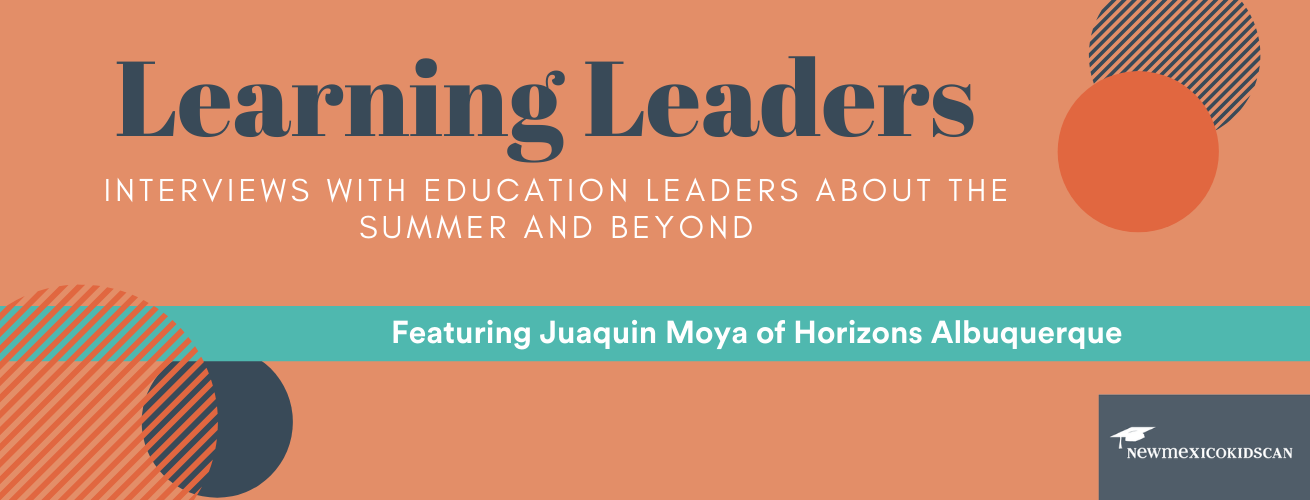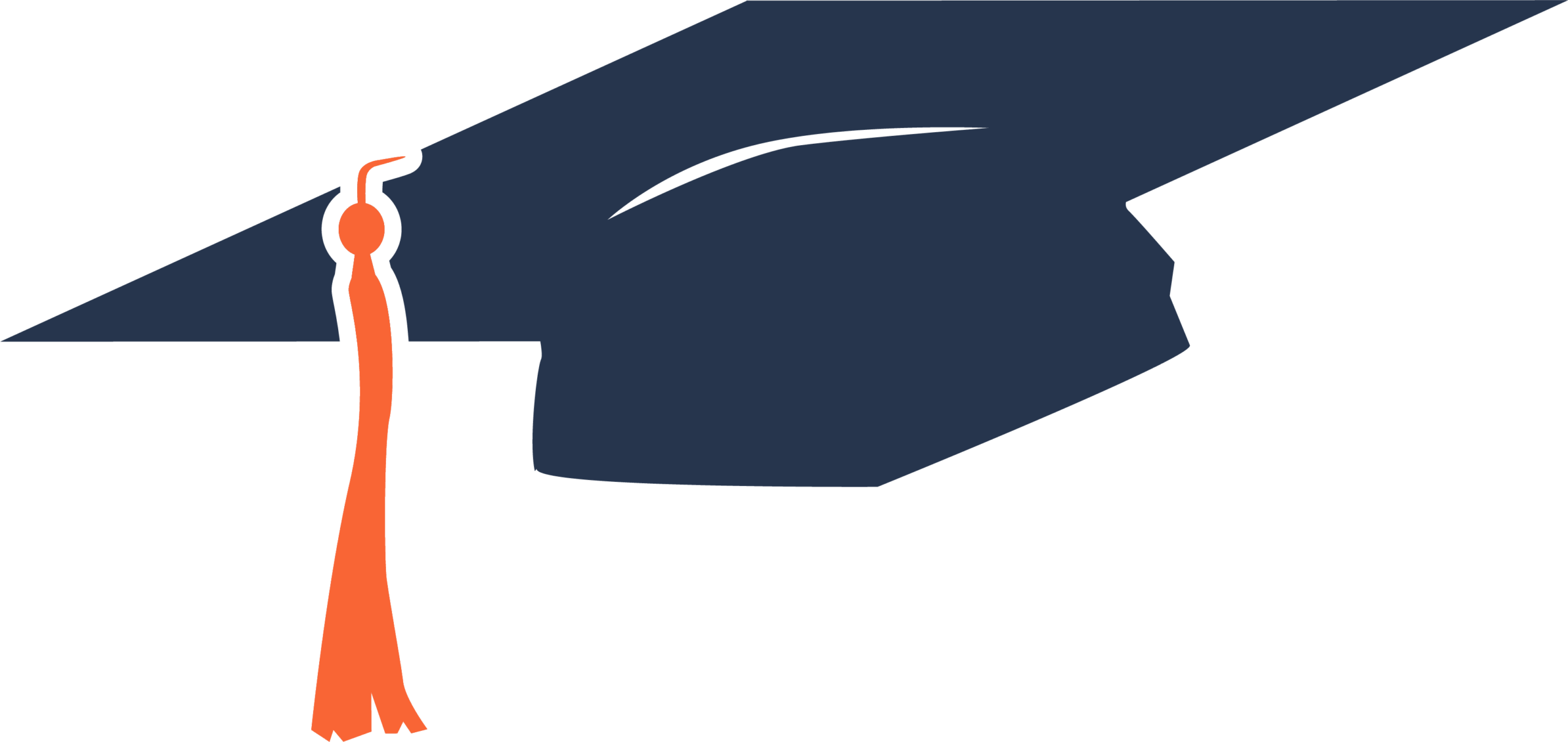In our last post of our Learning Leaders series we interviewed the executive director of Horizons Albuquerque, Juaquin Moya.

Horizons Albuquerque is an out-of-school time academic program for students who are from public schools and are eligible for free or reduced meals. Students receive a full time scholarship from elementary school and remain in the program until their high school graduation.
Can you tell me a bit about your summer program?
The summer program at Horizons is their most intensive work with students. In the program, teachers host 90 minutes of instruction for literacy, science, and math each day. Although this summer they are unable to do in-person programming, such as teaching students how to swim. This summer the academic and enrichment learning will take place virtually and there will be a daily meal site . Their traditional enrichment programming will remain in place this summer and they’ll offer Project Based Learning, Social Emotional Learning, guitar, tennis, art, chess, dance and mindfulness.
Why do you think it’s important to have a summer program available for students?
Moya mentioned how prior to COVID-19, educators discussed the “summer slide” which is the idea that students, especially those from low income households, lose anywhere from three to four months worth of learning when they’re out of school for the summer. Now, in a pandemic, Moya refers to this as the “COVID-19 slide.” Since school closures, students have experienced a 30% loss in literacy, 50% loss in math, 80% truancy for students from low income households. If programs do not exist to support students, then there will be no improvement for students’ academic graduation rate and higher learning access. Even though students are online, Horizons is looking for opportunities to look to support students in a nontraditional way.
What was the biggest challenge you had in adapting your normal programming to this new format?
Moya says there have been many challenges for Horizons; one such challenge was creating a contingency plan with so many unknowns and little direction. Another such challenge was communicating with school districts, as well as raising the funds to purchase devices and other supplies. Many of the faculty at Horizons hoped they would be able to resume in-person instruction for the summer program, so there were some frustrations when it was announced that distance learning would continue into the summer.
What has the feedback from participants and their families been like?
Horizons relies on feedback from students and families, so surveys were sent out to get an idea of what was needed for students. They learned that students needed devices, but also learned that many families didn’t feel supported or prepared for their child’s distance learning program. Moya said that many families were not taught the clear virtual classroom etiquette or how to handle cyberbullying in a virtual environment. Summer programming for parents provided by Horizons will address proper online etiquette, how to support their students, and understand the programs that are used in distance learning. When students return to school in the fall they will be better prepared for virtual and distance learning.
How is Horizons working to mitigate the impacts of the digital divide and the inequities that we’ve seen expanded through school closure?
When surveys were sent out to families, Horizons discovered that their top priority was to provide students with equitable devices, such as Chromebooks or laptops, so students could learn with the appropriate devices. To ensure students have access to these devices, they requested that schools allow students to keep their technology devices for the summer. Equitable devices were also acquired via donation from schools or were purchased by Horizons directly. With this access to equitable technology, students will be better equipped to return to the possibility of distance learning in the future.
How do you plan on supporting Horizons students through their transition back to school in the fall?
Moya said their program is preparing students to be successful whether they return to traditional school programming or distance learning in the fall. Academically, they’ve been using the same programs that APS is using, such as Google Classroom. This allows both students and parents to become more familiar with the program, but also prepares them for the possibility of distance learning continuing at the start of the academic year. Horizons programming also includes preparing students to develop as leaders and ready to be engaged if schooling returns to in person in August. Horizons has been preparing students emotionally and socially to ensure students have the tools they need to navigate problems and barriers that are still to come. The teachers at Horizons receive professional development around trauma, so their approach for teaching will not only be academic instruction, but also creating a larger support system for their students’ social and emotional development.
We’d like to thank Mr. Moya for taking the time out of his schedule to talk with us! You can find more information on Horizons Albuquerque on their website.


